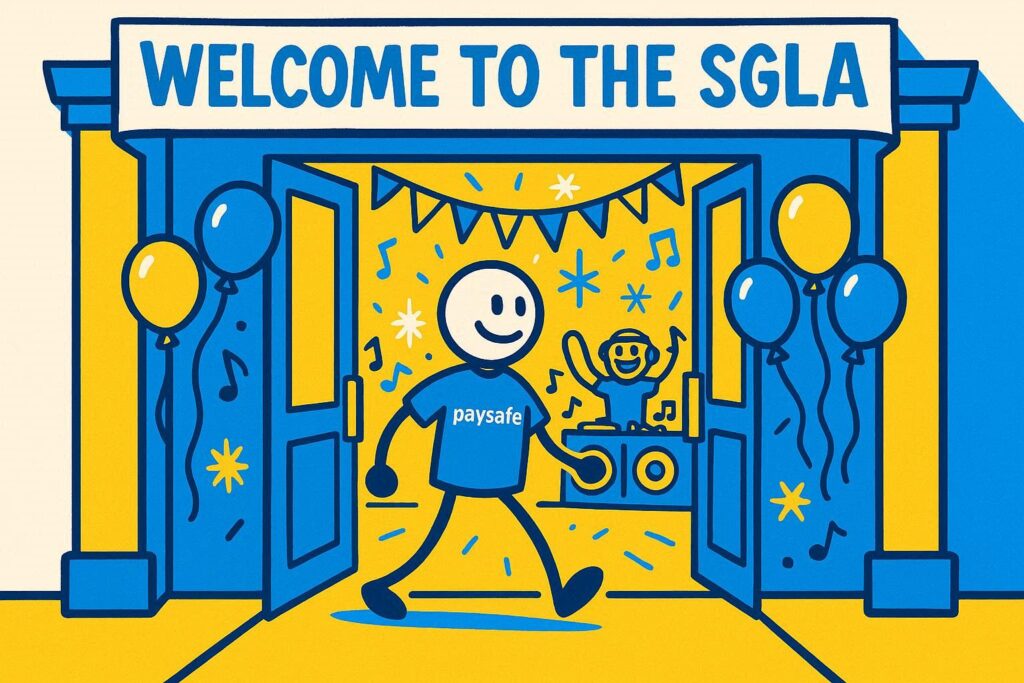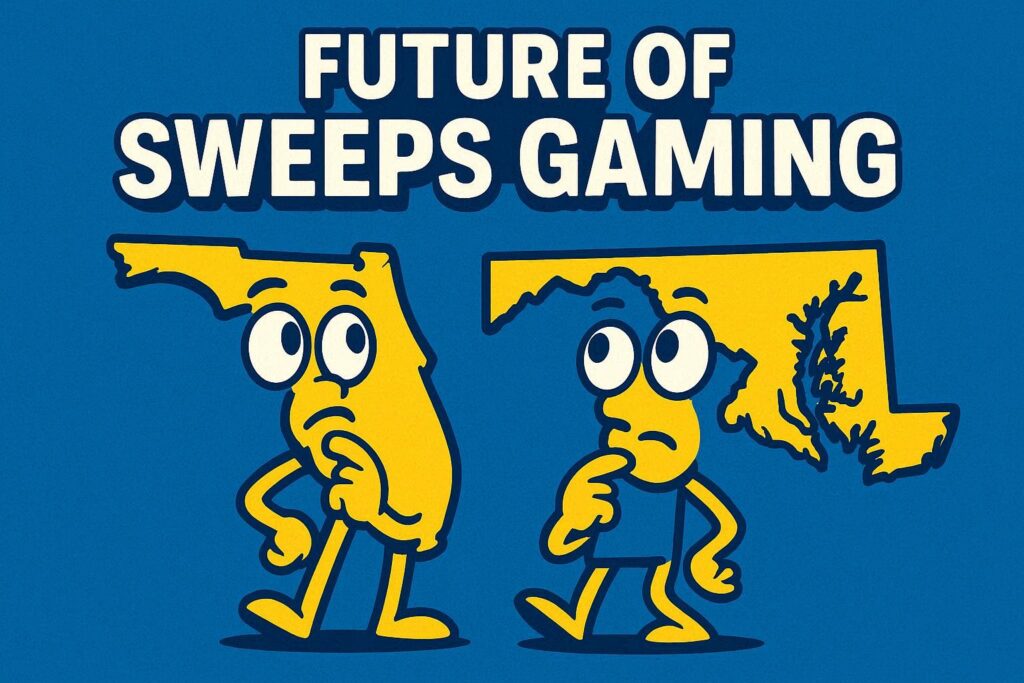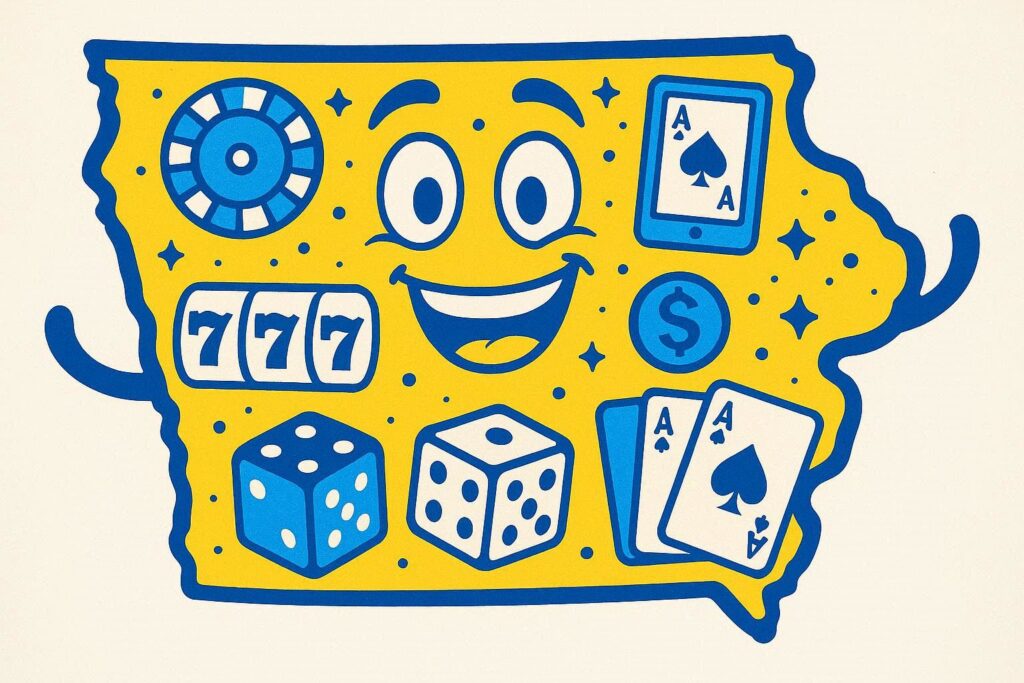Nearly a year ago, Victor Rocha made a prediction.
States would crack down harder on online sweepstakes casinos, pushing them out their respective jurisdictions. Then, those sweeps operators would set up camp in California, where Rocha said they “want to make their final stand.”
Reflecting on that though during his The New Normal weekly webcast on Wednesday, the conference chair of the Indian Gaming Association took it one step further, especially after California lawmakers advanced AB 831 to prohibit online sweeps casinos earlier in the week.
Once legislation passes, once sweeps casinos specifically become illegal, Rocha said, “they’re not going to have much more oxygen left after that.”
Essentially, once California bans sweeps, the vertical will begin to die out. However, as Rocha and his panel emphasized, it’s one thing to enact legislation. It’s an entirely different matter to enforce it. And the state of California, all agreed, needs to follow through with enforcement. Otherwise, online sweepstakes casinos will continue to thrive.
Differences between sweeps casinos and ‘true social casinos’
Rocha’s webcast came a day after the California Senate Governmental Organization Committee advanced AB 831 to ban online sweepstakes casinos in the state, a move that Rocha and his guests praised.
Testimony from opponents certainly entertained the panelists – which included Jason Giles, executive director of the National Indian Gaming Association; Scott Crowell, a prominent tribal gaming attorney and founding partner with the Crowell Law Office; and Joe Webster, managing partner at Hobbs, Straus, Dean & Walker, LLP.
Rocha noted that proponents of sweeps casinos “went after” the San Manuel Band of Mission Indians, which operates an online social casino. Crowell pointed out that the San Manuel platform is a “true social platform,” one that allows users to “be entertained” without having to make wagers for real money prizes. That aspect, Crowell said, “is where you step over the line from legal to illegal in the sweepstakes arena.”
“I can’t believe they used that argument. Were they aware that people could hear them?” Rocha joked. “Were they aware that other people were in the room when they used that argument? Because that’s absolutely ridiculous.”
Indeed, Crowell agreed. He conceded that when users sign up with sweepstakes casinos, the platform certainly resembles social platforms. However, sweeps casinos then allow consumers to purchase Gold Coins, which the operators reward with Sweeps Coins, a form of virtual currency that can be redeemed for real-money prizes.
That notion, Crowell said, that sweeps operators simply give away Sweeps Coins for free is “just so bogus. It doesn’t pass the smell test.” He added that the San Manuel product does not feature a live, for-money feature. So to compare the tribe’s platform with a sweepstakes casino “is equally bogus.”
“Anybody that truly knows what’s going on,” Crowell said, “realizes that this is illegal online gaming.”
Online sweeps casinos threaten tribal exclusivity
Throughout the country, states have followed one of several approaches to rid online sweepstakes casinos: Pass legislation to ban the platforms, issue cease-and-desist letters, file lawsuits or any combination.
All the while, Rocha said, “the sweepstakes guys are whining like stuck pigs.” Their arguments for legality, he added, nobody’s buying them. “It all just seems very weak and disingenuous.”
Citing the legislative movement to crack down on sweeps casinos, Webster called it “encouraging,” especially considering that online sweeps threaten tribal exclusivity across the country provided by gaming compacts.
While tribal casinos have table games and slots, many certainly don’t offer them online, which some sweeps operators do, as well as sports betting.
“It’s really the whole range of gaming that tribes are supposed to, in many cases, have exclusivity for are just being run over by these operators,” Webster said.
That led Giles to wonder if tribes should begin drafting their own regulations against sweeps casinos. They certainly could, Webster said. What’s more, they could also issue their own enforcement actions and potentially even bring suit against sweeps operators in federal court for violation the tribal compacts.
“Tribes certainly have an opportunity, particularly if state enforcement isn’t forthcoming,” Webster said. “Yeah, I think that is something to look at.”
CA law prohibits sweeps, but regulators have not enforced it
That follow-through on enforcement was heavily emphasized by Rocha’s guests. In terms of AB 831 itself, Crowell said, there shouldn’t be the need for additional clarity or major modifications. The reality is that sweepstakes gaming has been and will continue to be illegal in the state, he said. Yet operators continued to remain in business.
He suggested that those who can enforce the law believe that the legislature is dealing with the issue rather than actually enforcing the law.
“I agree that, in some sense, the law is already clear. The way these things are being operated today doesn’t pass muster,” Webster said. “The legislation certainly makes that even more clear. But regardless of what the legislation says, unless you do get the follow-through enforcement, I do worthy that these companies are going to continue to operate.”
On top of it all, he continued, many online sweepstakes operators are based offshore. As a result, it’s unclear where money comes or goes or if bad actors are involved. As such, from a public policy standpoint, “this shouldn’t be a hard sell to state regulators and state enforcement authorities to shut it down, particularly when the statutory language, I think, is abundantly clear.”
Crowell said that state regulators need to “step up the enforcement action.” Perhaps, it was suggested, legalizing iGaming could help. Crowell said that there is clearly a high enough demand for online sweepstakes casinos in California. Yet unlike in states like Michigan, where online casinos are licensed and regulated, players in the Golden State do not have a legal option to turn to once these unregulated platforms are shut down.
Without a world in which state regulators can oversee a licensed industry, including safeguard for consumers as well as age verifications, “this unregulated, illegal environment is going to seize on that vacuum that’s created by that legal option not being available. In California, that’s what we’re looking at.”
Said Crowell: “I think this folds into our larger discussion of how and when the California tribes will put an initiative in front of the California voters to allow them a legal platform in which to play these games.”
Suggestion: Legalize iGaming, enforcement will follow
But why is California “the last stand,” as Rocha put it? Well, Webster said, that lack of enforcement – such as cease-and-desist letters, at the bare minimum – creates a space in which online sweeps casinos can operate.
It is obviously a large market, one that does not have any – and certainly not legal – competitors. This allows sweeps operators to fill a void, because there had been no previous enforcement.
“The issue we’re talking here really is technology moving faster than the speed of love, technology moving faster than we’re prepared for,” Rocha said. “And all of a sudden, you wake up one day … and someone’s in your bed, you know what I mean?
“And the fact that the tribes aren’t occupying that space, although they’re preparing, there’s always somebody willing to fill that thing. Without teeth, enforcement is nothing. A wag of the finger is not going to do it. … We really need enforcement and that’s why I’ve been screaming from the top of the rooftops, ‘Discouragement is the only thing that these guys are going to understand.'”







